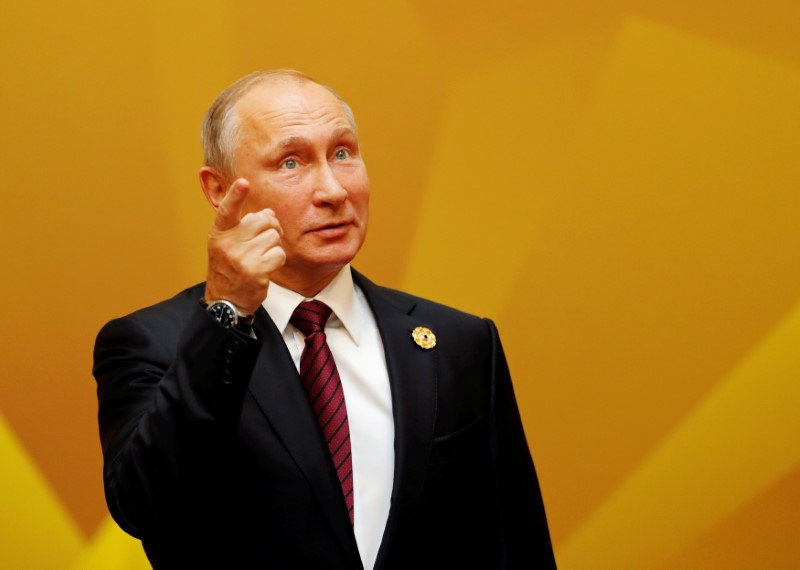 © Reuters. FILE PHOTO: Russia’s President Vladimir Putin attends the APEC Economic Leaders’ Meeting in Danang, Vietnam
© Reuters. FILE PHOTO: Russia’s President Vladimir Putin attends the APEC Economic Leaders’ Meeting in Danang, VietnamMOSCOW (Reuters) – Russia received a long-awaited upgrade to its sovereign rating from S&P Global, a move set to bolster capital inflows into its financial markets just weeks before a presidential election.
S&P Global Ratings raised Russia’s foreign currency long-term and short-term sovereign credit ratings to investment grade of ‘BBB-/A-3’ from so-called junk level of ‘BB+/B’ late on Friday night.
The upgrade may be seen by financial markets and Russian officials as an approval of the oil-dependent country’s efforts to get back to economic growth path.
Russian authorities also track ratings as a gauge of Western sentiment towards Moscow’s policies before the March 18 presidential election, which president Vladimir Putin is widely expected to win.
Finance Minister Anton Siluanov, who called Russia’s rating downgrades in 2014 “politically motivated” amid the Ukrainian crisis, said on Saturday the S&P’s decision was anticipated and logical.
“The assignment of the investment (grade) rating will certainly increase investors’ interest in Russia, not only in investing in state assets but also in private business,” Siluanov told reporters on Saturday.
The S&P upgrade is Russia’s second investment grade rating. Fitch also has an investment grade on Russia which it left unchanged late on Friday.
Market players expect demand for Russian state bonds to increase as major international funds require two investment grades as a minimum to invest in a country’s financial instruments.
LONG-AWAITED MOVE
The Russian finance ministry had said before it expected international rating agencies to upgrade Russia after it lived through the peak of economic turmoil in 2014-2015. But the agencies avoided rapid moves as they contemplated Western sanctions and Russia’s tepid economic activity.
In its report, S&P lowered Russia’s rating outlook to stable from positive, but said it expects “broad policy continuity and macroeconomic stability” after the election.
“In the longer term, the limited track record and uncertainty surrounding the succession of power could undermine predictability of policy priorities,” it said.
The agency praised Russia’s policy response to lower commodity prices and international sanctions, highlighting its strong net external asset position, low government debt and the central bank’s monetary policy.
It forecast economic growth at 1.8 percent this year, continuing to recover through to 2021, and noted that Western sanctions would remain in place through the forecast horizon.
“Sanctions will continue to limit Russia’s trend growth and economic diversification efforts due to high investor uncertainty and constraints on technology transfer.”
Fusion Media or anyone involved with Fusion Media will not accept any liability for loss or damage as a result of reliance on the information including data, quotes, charts and buy/sell signals contained within this website. Please be fully informed regarding the risks and costs associated with trading the financial markets, it is one of the riskiest investment forms possible.
Source: Investing.com




























